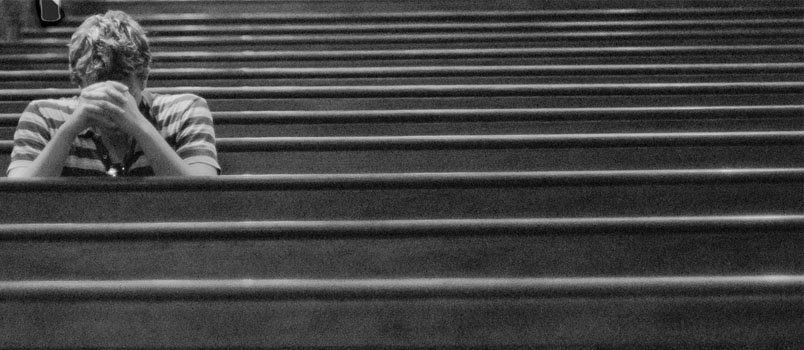 A popular passage on repentance and revival directs Christians on how to face a troubling culture, writes Athens pastor David Mills.
A popular passage on repentance and revival directs Christians on how to face a troubling culture, writes Athens pastor David Mills.Often, the way this verse will be preached in many evangelical pulpits is as a rallying cry. In so many sermons, the ‘people’ referred to in the passage are the American people, and the ‘land’ is the American land. The meaning of the text is understood as an invitation to 21st century America to ‘return to God’ and then enjoy God’s blessing once again. It’s no wonder one scholar said that 2 Chronicles 7:14 is ‘the John 3:16 of the American civil religion.’… If we take this text and bypass the people of God, applying it to America in general or the Bible Belt in particular, as though our citizenship as Americans or Australians or Albanians is the foundation of the “covenant” God has made with us, the problem is not just that we are misinterpreting the text; the problem is that we are missing Christ.”
I have read and heard dozens of sermons on 2 Chronicles 7:14 and recall only one Pentecostal coming anywhere near the problem the article cites. Because the objects of the article’s complaint are evangelicals, one fears just a little that a straw man has been erected and torn asunder by a brilliant pen. Nearly all the expositors I have read or heard have been careful to define the context as Jerusalem in Israel under Solomon’s reign dedicating the temple. They did not misidentify the United States as a “New Israel.” In fact, a significant element of their message consisted of the fear that an increasing number of Americans did not have saving faith in Christ. They applied a text addressed to Israel to the hope for revival of the United States, as we do many texts, but they did so without dismissing the biblical context or outreach to other nations. In John Stott’s words they bridged two worlds,[1] the biblical world and the contemporary world. Second, the article poses the question “Where should we ‘take America back’ to?” and wonders if “back to the era of Founders, or back to the 1950s, or the 1980s?” The suggestion that preachers and authors who expound 2 Chronicles 7:14 mean to take the United States back to the Founders, 50s, or 80s, in the absence of direct statements from them, may stretch their words beyond what they intended. No one appreciates that. In fact, the messages I have read and heard did not address America at all; they addressed God’s people, “My people” in the text, and explained how to bring the church back to God in hopes of having the spiritual power to bring the nation(s) to Christ. They offered the biblical hope that if we bring God’s people back to holiness, faith, and obedience we will be better equipped to bring the world to Christ, not the 50s, 80s, or Founding Fathers. Third, the article makes use of some emotive terms. It compares the preachers about which it complains to theological liberals and health, wealth, prosperity gospel preachers. It states “To apply the verse this way is ... theological liberalism. .. When we apply texts like this to the nation, apart from the story of Scripture, we do precisely what the prosperity gospel preachers do.” These comparisons do not work. The preachers about which the article complains want revival and use the biblical text to advance it. They are not theological liberals; they do not deny the Trinity, Christ’s deity, biblical inspiration, or the doctrine of eternal punishment. Theological liberals generally ridicule such matters. Health, wealth, and prosperity preachers want health, wealth, and prosperity, things revival has been known to wreck (see Rev. J.J. Cheek of First Baptist Paducah and economic failures of the Global Awakening of 1904-1910). Preachers and authors I am aware of have expounded 2 Chronicles 7:14 cited theological liberalism and false “gospels” as evidence of our need for revival. I sure hope I am wrong, but I struggled to avoid the sense that I was being manipulated with this language. We should exercise caution when disagreeing with sincere believer’s interpretation or application of Scripture. The passage in 2 Chronicles 7:14 offers contemporary Christians a hopeful promise and path to revival for God’s people in this nation and all the nations. Its themes are New Testament themes that direct God’s people in what to do in a time of decline to return God’s people to God that they might be a light to the nations.[2] God has given the entire Old Testament to the church, too (Rom. 15:4). If we understand God’s promise in 2 Chronicles 7:14 in its biblical context and trace its meaning to Christ, we will have solid ground on which to call God’s people to return to Him.